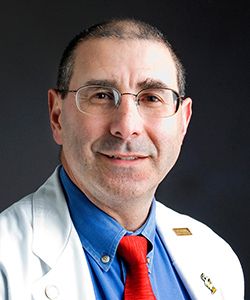
Glioblastoma is an aggressive brain cancer that claimed the life of former U.S. Sen. John McCain in 2018. A cure does not exist, and the current five-year survival rate is 15 percent – double what it was 20 years ago – thanks to new treatments like the chemotherapy drug Temozolomide.
Now, new findings from a pilot study at the University of Missouri School of Medicine show antioxidants such as alpha-lipoic acid may show promise working in tandem with Temozolomide to further slow brain tumor growth.

“Temozolomide is the most common first-line chemotherapy agent for patients with glioblastoma,” said N. Scott Litofsky, MD, professor and chief of neurological surgery at the MU School of Medicine. “Before Temozolomide was available, the median survival for glioblastoma was about nine months. With Temozolomide, survival increased to about 14 months. Many patients also take over-the-counter supplements in addition to their Temozolomide treatment. We wanted to know whether these supplements assist or hinder chemotherapy treatments.”
Litofsky’s research team studied one glioblastoma cell line taken from consenting patients and another purchased from American Tissue Culture Collection. The researchers pre-treated the glioblastoma cell lines with varying concentrations of one of three anti-oxidants – vitamin D3, melatonin or alpha-lipoic acid – for 72 hours followed by a 72-hour treatment with Temozolomide.
The researchers found using the antioxidants in combination with the drug slowed cancer cell growth at varying levels. Specifically:
- Vitamin D3 alone did not affect the glioblastoma cells but did have a slight benefit when offered in combination with Temozolomide.
- Melatonin alone decreased cancer cell growth in the pre-treatment phase by more than 60 percent, but showed no significant slowing of cell growth in combination with chemotherapy treatment.
- Alpha-lipoic acid reduced cell growth by more than 50 percent in both the pre-treatment and chemotherapy phase compared to the control in one cell line, and 44 percent in the other.
- Both melatonin and alpha-lipoic acid significantly enhanced the effectiveness of Temozolomide’s ability to destroy cancer cells.
“The dose of alpha-lipoic acid that we used in our cell cultures is a dose that can be attainable when a person takes the antioxidant orally,” said Dianne McConnell, DVM, PhD, senior research specialist in the Division of Neurological Surgery at the MU School of Medicine. “Alpha-lipoic acid showed in our study that it may affect the cells that escape treatment with chemotherapy. If the alpha-lipoic acid can decrease the growth of those cells by the time they do the next dose of chemotherapy, the tumor can’t grow, and chemotherapy might be more effective.”
Although these results show promise, more studies are necessary before determining the effectiveness of combining antioxidants with Temozolomide to treat glioblastoma in humans. The researchers’ next step is to test alpha-lipoic acid in tandem with Temozolomide in mice.
“Just because something works in a test tube doesn’t mean it will work in a living being,” Litofsky said. “There’s a lot of work that needs to be done to see if this can make a difference without causing other side effects in humans.”
In addition to Litofsky and McConnell, the study authors include Joe McGreevy, MD, University of Missouri School of Medicine, and Macy Williams, undergraduate student, University of Missouri. Their study, “Do Antioxidants Vitamin D3, Melatonin, and Alpha-Lipoic Acid Have Synergistic Effects with Temozolomide on Cultured Glioblastoma Cells?” was recently published by the journal, Medicines. Research reported in this publication was supported by Head for the Cure Foundation and Stand Up to Cancer. The authors of the study declare that they have no conflicts of interest. The content is solely the responsibility of the authors and does not necessarily represent the official views of the funding agencies.





